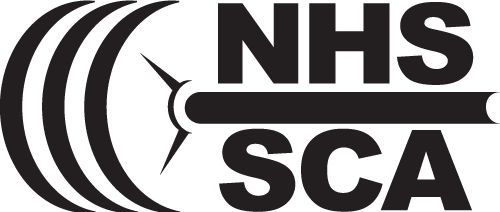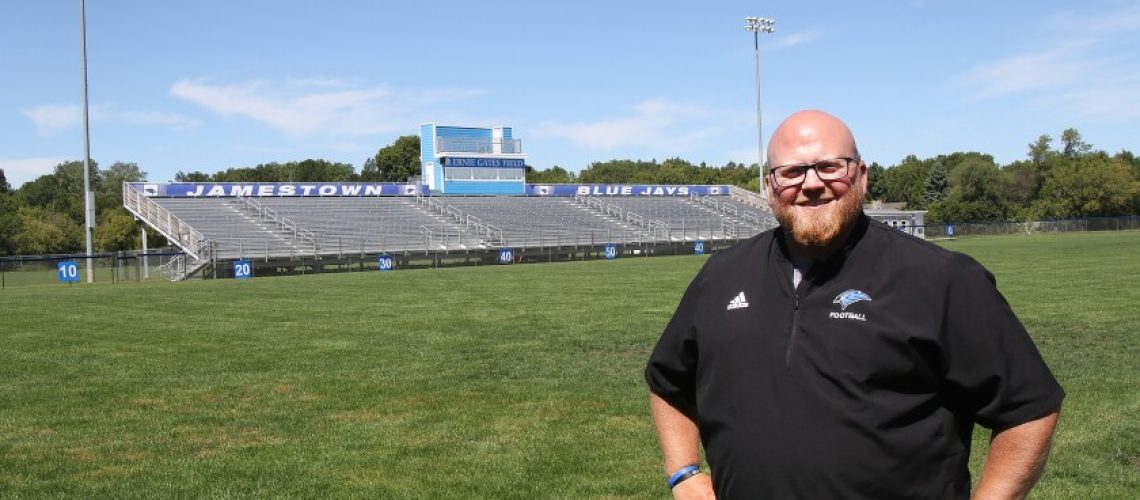Bill Nelson is Strength & Conditioning Coach, Football Coach, and Physical Education/Health Teacher at Jamestown High School in North Dakota. He spent the first five years of his career as a collegiate strength and conditioning Coach at the North Dakota State College of Science and North Dakota State University and is beginning his 20th year as a strength coach and coach in the public high school setting.
Coach Nelson provides insight into how he trains athletes and what makes his BAD program unique.
What are the core values of your training philosophy?
We keep it simple and keep things moving. During a workout, we have little to no downtime. We train in rotations or tiers, as many may call it. It usually involves at least three, maybe four exercises. I have been handling workouts this way for 24 years. I want to think we continually evolve and grow. I spent three years as a student athletic trainer, so we are always programming more mobility work, ankle stretching, etc., than the average strength coach. “No” and “Can’t” are two words we don’t use in the strength training room. We make a commitment to be physically strong, mentally tough, have outstanding character, and never be outworked. We hold everyone accountable and have high expectations for all that walk into our weight room.
What do you do in your training program that makes it unique—including the BAD program you’ve developed?
Everyone refers to BAD as our summer program, but it is year-round. We went from two classes a year 11 years ago to nine classes a day with two different zero-hour classes. Students are also finding out that the classroom is one of the greatest benefits to their increased strength. Once football is done, we start Speed School sessions three days a week in December and continue until early May. Our in-season team training times start at 4:15 p.m. daily during winter and spring. In the fall, when I’m working with football, we have another coach who trains teams and does off-season work with them. Our summer program has continually grown every year.
How has your experience as a football coach impacted the way that you train high school athletes?
I’m a year-round sports junkie, and what we do in our weight room will always impact our success on the field. That will never change. We were fortunate to win our first state football championship in 84 years last fall. I am a big RPR fan — it’s done daily—every workout, start of practice, the start of the game, etc. It’s provided me with an understanding of when to push hard and when to pull back. And this carries over to the classroom; We have a lot of kids in class who are excelling in their studies.
Kids are recovering faster and staying healthier. We haven’t practiced in full pads in two years and had the same starting lineup in week 12 as in week 1. That is a direct reflection of how we do things. Now we have great kids and great coaches, and fan support is tremendous—all these things combined helped our success.
What trends do you see impacting the profession in the future?
I wish I could go back to when I was 28 years old. I’ve tried and failed many times, but one value from the past keeps coming up: Just because something is difficult, don’t shy away and give up. Too often, we want to take the less traveled and easier road. Going through uncomfortable situations only makes you better. There are many coaches out there that I’ve borrowed/stolen things from. I heard this seven years ago: “Make the big time where you are at,” and that’s what we are doing here. Worry about you and your programs, not what all the “Jims, Jills, Jodis, & Joes” are doing.
Where do you go for continuing education, and what is the best piece of strength training & conditioning advice you have received?
Ask questions, reach out to others, and don’t be afraid—you don’t know it all and probably never will. If that time ever comes, it’s time to find something else to do. When I have to actually get up and go to work, it’s time to find something else to do. Smile and think about others—it’s not always about you. For continuing education, I use social media to communicate with others and ask why. The NHSSCA has created an amazing amount of resources and networking opportunities—this is the best part of our organization!
What do you hope for a student-athlete to learn while in your program?
I want them to learn to work hard and do things right. The most gratifying thing is seeing a student-athlete 10-15 years after high school in a career they love and successful doing it. We talk about doing things the “right” way vs. the “wrong” way; one leads you down a successful path, and the other does not.



